This website uses cookies so that we can provide you with the best user experience possible. Cookie information is stored in your browser and performs functions such as recognising you when you return to our website and helping our team to understand which sections of the website you find most interesting and useful.
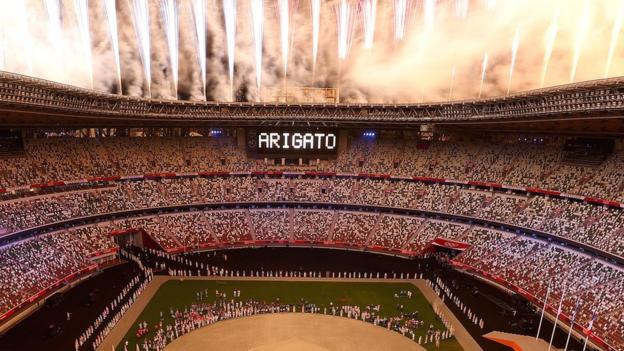
On Sunday, the delayed Tokyo 2020 Olympics came to an end after 19 days of competition.
Thirteen African nations won medals, some for the very first time, while the Games also produced new heroes and enhanced the status of more seasoned stars.
BBC Sport Africa's Celestine Karoney, in the Japanese capital throughout the event, reflects on what Africa learnt from an unforgettable fortnight:
'King-Choge'
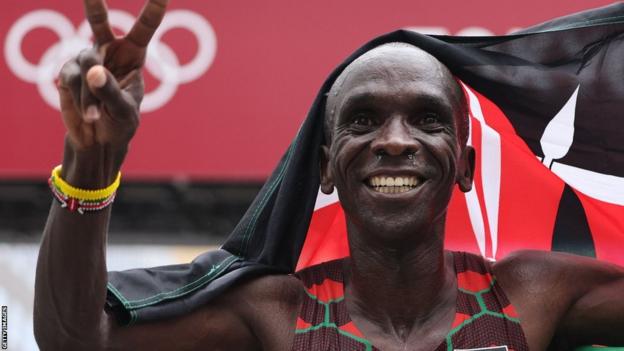
Eliud Kipchoge's victory on the last day of the Olympics had the sport's governing body, World Athletics, labelling him 'King-Choge' as the Kenyan surely cemented his place as the greatest marathon runner of all time.
Not only is he the only man to have run the distance in under two hours (in assisted conditions), but the world record holder became the third man to successfully defend an Olympic marathon title - and first in over four decades.
In an athletics programme illuminated by some record-breaking performances, the 36-year-old's run in hot and humid conditions in Sapporo epitomised the stamina that make distance runners so revered.
Breaking through
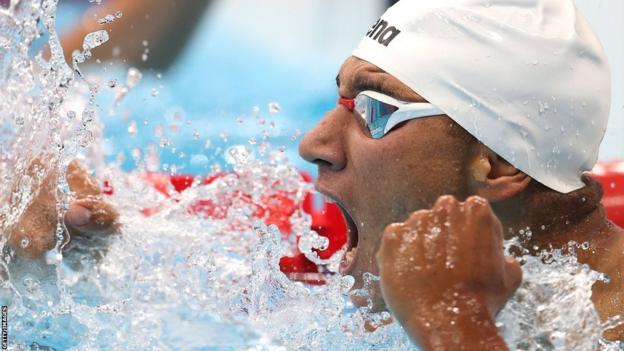
Young athletes made their mark for Africa at these Games, with the continent's first gold medal in Tokyo delivered by an 18-year-old.
Tunisian swimmer Ahmed Hafnaoui may have reached the 400m freestyle final in his very first Games but he certainly did not expect to win. In the belief he would fail, he did not carry his ceremonial outfit to the aquatic centre - meaning this talent collected his gold medal in his training kit.
Hafnaoui's feat was matched 24-year-old South African Tatjana Schoenmaker as she took gold and was the only woman to set an individual world record in the 200m breaststroke having already won silver in the 100m event.
The Games' final weekend saw another youngster, Ahmed Elgendy, shine as the Egyptian, 21, became the first African to win a medal in modern pentathlon, which has been in the Olympics for over a century.
Elsewhere, there was a mix of firsts for both countries and sports.
Triple jumper Hugues Fabrice Zango won Burkina Faso's first ever Olympic medal (bronze) while Egyptian duo Feryal Abdelaziz, just 22, and Giana Farouk won gold and bronze respectively as karate made its debut.
South Africa's Bianca Buitendag won silver as surfing also debuted at the Games while compatriot Delaine Mentoor also made history in the water as she became the first woman to coach a male water polo team at the Olympics.
Mother of all feats
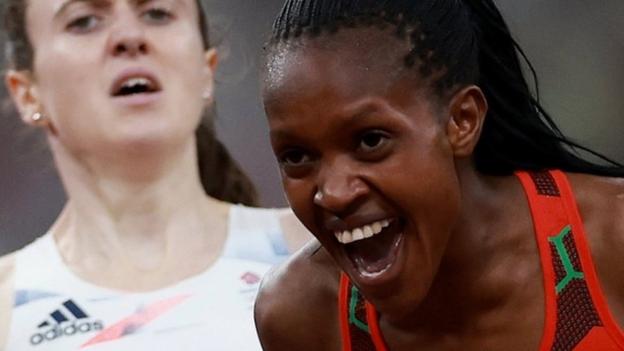
Until these Games, only one African - Cameroonian triple jumper Francoise Mbango - had ever successfully defended an Olympic title after having a baby between Olympics.
But Kenya's Faith Kipyegon, who gave birth to a daughter in 2018, changed all that when winning the Olympic 1500m title she first claimed in 2016.
"Coming here was emotional for me," she said. "I know (my daughter) is watching me and hoping for the best from mummy."
And how Kipyegon delivered, breaking the previous Olympic record which had stood for 33 years.
Kipyegon joined a list of 'medallist mothers' in Tokyo, with the USA's Allyson Felix - the first woman to claim 11 Olympic athletics medals - leading the way.
Testosterone debate runs on
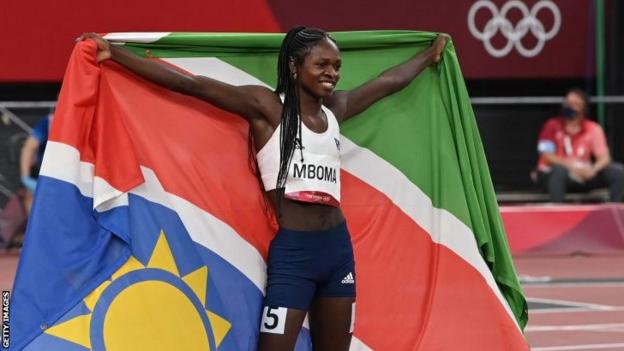
Christine Mboma may have won Namibia's first medal since the 1996 Atlanta Games with a silver in the 200m, but she also stirred the arguments over athletes with naturally-high levels of testosterone.
Just weeks before Tokyo 2020, Mboma was barred from contesting her favoured distance after being classified as an athlete with a Difference of Sexual Development - as any athlete with overly-high testosterone cannot run any distance between 400m (Mboma's preferred event) and the mile unless they artificially reduce their levels.
After she ran a new under-20 record of 21.81 seconds to finish ahead of Jamaican great Shelley-Ann Fraser Pryce and Ivory Coast's Marie-Josee Ta Lou, World Athletics' president hinted that the rules may need to be revised.
"The sport has to respond to changing circumstances and in 10-15 years, the world will be very different," Lord Coe told BBC Sport Africa. "Every congress there's an opportunity to change anything in the light of those circumstances."
Superpowers' demise deepens
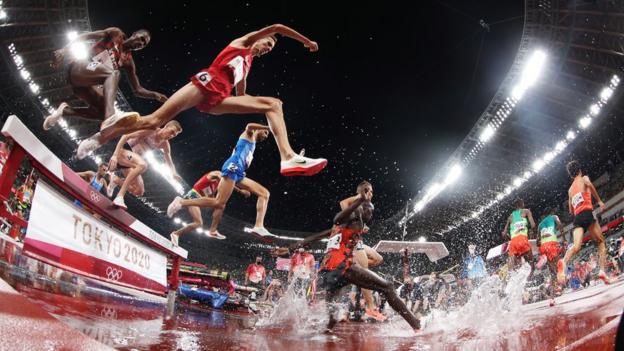
Is the one-time seemingly-unbreakable dominance of middle- and long-distance by Kenyan and Ethiopian athletes a thing of the past?
It might be when you consider Tokyo 2020, where both nations won fewer athletics medals than less traditional powers like Italy and Poland.
Kenya's has not won a 10,000m and 5,000m title since 1968 and 1988 respectively, while Ethiopia has not won a men's 5,000m title since 2008.
Far more worryingly for Kenyan athletics fans was the failure to win the men's 3,000m steeplechase for the first time since 1968 (albeit there was no title in 1984 when Africa boycotted the Games).
Ethiopians, meanwhile, had to watch on as Sifan Hassan - born in Oromia but who now runs for the Netherlands - became the first athlete to medal in the 1500m, 5,000m and 10,000m at a single Games.
Olympic spirit
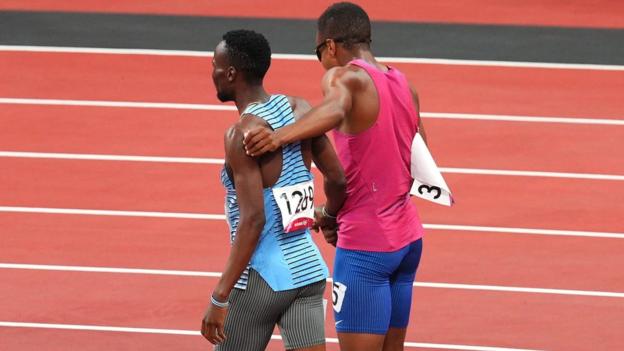
Holding the Olympic Games during a pandemic meant there were no fans inside venues for the first time in its 125-year history, while athletes, media, volunteers and officials had to adhere to strict Covid-19 precautions.
All were delighted by the lack of major outbreaks, so allowing most athletes to take part in the Games after months of uncertainty.
There were many moments that showed true Olympic spirit but what stood out for me was the last 800m semi-final.
After Botswana's Nijel Amos and American Isaiah Jewell fell, so ruining their final hopes, the pair helped one another up and jogged to the finish line together with the applause of those in the stadium ringing in their ears. (Amos was later reinstated after winning an appeal.)



 Africana55 Radio
Africana55 Radio 
